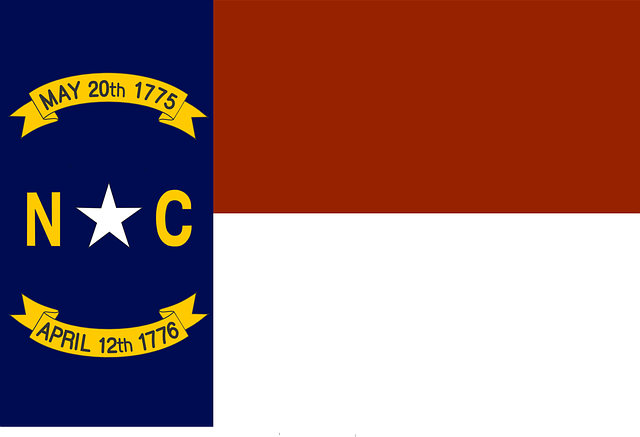Spam calls pose significant challenges for law firms in North Carolina, impacting productivity, costs, and client confidentiality. To combat this issue, law firms can employ advanced technologies and call screening methods recommended by spam call law firms NC, ensuring ethical communication practices while safeguarding client interests. The state's stringent regulations, like the NC Spam Call Law, require compliance to avoid penalties. By adopting innovative strategies and leveraging cutting-edge technology, law firms can reduce nuisance calls, improve client interactions, and enhance overall productivity.
In the digital age, law firms in North Carolina face an unprecedented challenge from spam calls, impacting their operations and client relationships. This article delves into the rising problem of unsolicited phone traffic targeting legal professionals. We explore the various dimensions, from understanding the impact on firm efficiency to examining the legal framework surrounding spam call laws in NC. Additionally, we provide practical insights and case studies on how law firms can mitigate these calls and harness technology for improved call control.
Understanding the Impact of Spam Calls on Law Firms in North Carolina
Spam calls have become a significant nuisance for law firms across North Carolina, impacting their operations and client relationships. With the rise of automated dialing systems, law firms are often deluged with unwanted calls, leading to decreased productivity and increased costs in managing these calls. The volume of spam calls can be overwhelming, making it challenging for legal professionals to focus on their core responsibilities.
These spam calls not only disrupt daily workflows but also pose potential risks to client confidentiality. Law firms must implement effective call control strategies to mitigate the impact of spam calls. By utilizing advanced technologies and employing robust call screening methods, law firms in North Carolina can protect their clients’ interests while ensuring efficient communication.
The Rise of Call Control Technologies: A Solution to Spam Calls
In recent years, the surge in spam calls has become a significant nuisance for individuals and businesses alike across North Carolina. This unwanted influx of telemarketing calls not only disturbs daily routines but also poses potential risks to consumer privacy and security. As a result, there’s been a growing demand for effective solutions, leading to the rise of call control technologies. These innovative tools offer a much-needed respite from spam calls, empowering users to take back control of their communication channels.
Call control technologies leverage advanced algorithms and machine learning capabilities to identify and block spam calls at the source. By analyzing patterns and behaviors, these systems can distinguish between legitimate business calls and unsolicited marketing attempts. This approach not only provides relief to consumers but also ensures that law firms in North Carolina can maintain ethical practices while reaching their target audiences.
Navigating the Legal Landscape: Spam Call Laws in NC
Navigating the legal landscape surrounding spam calls in North Carolina (NC) is a complex task, especially for businesses aiming to implement effective call control measures. The state has stringent regulations in place to protect consumers from unwanted telemarketing practices, with various laws and guidelines that must be adhered to. One of the key pieces of legislation is the NC Spam Call Law, which outlines strict penalties for violations. This law covers a wide range of topics, including do-not-call rights, caller ID requirements, and restrictions on automated or prerecorded calls.
Business owners in NC should partner with reputable spam call law firms to ensure compliance and avoid costly legal repercussions. These firms specialize in navigating the intricate web of regulations and can provide guidance tailored to each company’s unique situation. By staying informed about the latest developments in spam call laws, businesses can protect themselves and their customers, fostering a more trustworthy and ethical environment for communication practices.
How Law Firms Can Harness Wisdom from Blowing Rocks (Case Studies)
Law firms in North Carolina, plagued by spam calls, can find a unique solution in examining the strategies employed by Blowing Rocks—a concept that offers a fresh perspective on call control. By studying case studies and implementing similar techniques, legal professionals can significantly reduce unwanted phone interruptions.
For instance, Blowing Rocks has successfully utilized advanced algorithms to identify and block nuisance calls, ensuring their team remains focused. Adopting this approach, North Carolina law firms can employ cutting-edge technology to filter out spam calls, improving client interactions and overall productivity. This method proves effective in creating a quieter, more efficient workspace, allowing legal experts to concentrate on cases and deliver exceptional service.
Implementing Effective Call Management Strategies: Tips for North Carolina Law Firms
North Carolina law firms face a unique challenge in managing incoming calls, especially with the surge in spam calls. Implementing effective call management strategies is crucial to ensuring client satisfaction and maintaining professional image. A robust system should start with identifying and blocking known spam numbers using advanced tools available from telecommunications providers. These technologies can automatically filter out unwanted calls at the network level, significantly reducing the volume of spam reaching firm offices.
Additionally, law firms should consider adopting a structured call routing process. This involves setting up specific rings for different types of callers—whether they are clients, prospects, or vendors. For instance, prioritizing client calls and ensuring they receive immediate attention can enhance customer experience. Moreover, training staff to handle calls professionally and efficiently is paramount. Consistent greeting scripts, clear communication channels, and call routing protocols ensure every caller receives a consistent level of service, regardless of the volume of spam calls plaguing the firm.






